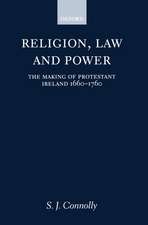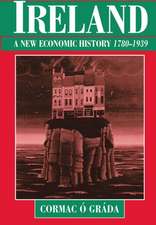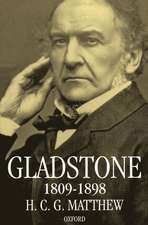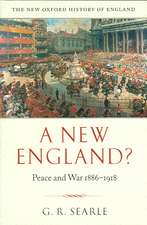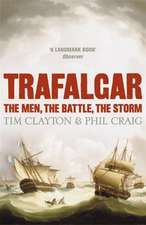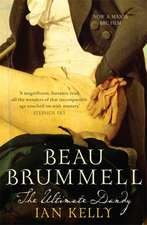Judging New Wealth: Popular Publishing and Responses to Commerce in England, 1750-1800
Autor James Ravenen Limba Engleză Hardback – 23 apr 1992
Preț: 1037.90 lei
Preț vechi: 1577.49 lei
-34% Nou
Puncte Express: 1557
Preț estimativ în valută:
198.60€ • 207.91$ • 164.33£
198.60€ • 207.91$ • 164.33£
Carte tipărită la comandă
Livrare economică 25-31 martie
Preluare comenzi: 021 569.72.76
Specificații
ISBN-13: 9780198202370
ISBN-10: 0198202377
Pagini: 340
Ilustrații: 1
Dimensiuni: 144 x 224 x 26 mm
Greutate: 0.58 kg
Editura: Clarendon Press
Colecția Clarendon Press
Locul publicării:Oxford, United Kingdom
ISBN-10: 0198202377
Pagini: 340
Ilustrații: 1
Dimensiuni: 144 x 224 x 26 mm
Greutate: 0.58 kg
Editura: Clarendon Press
Colecția Clarendon Press
Locul publicării:Oxford, United Kingdom
Recenzii
Raven makes an interesting case, clearly supported with a wealth of evidence.
Subtle and intelligent
a subtle and persuasive study of the formation of cultural practices out of changing material conditions ... a tour de force of the new cultural history (of the material sort) and a model for historians trying to understand the relationships between publishing, culture, and society
Raven pursues his quarry with a rigour which has been conspicuously absent from previous explorations of changing attitudes. Raven contextualises his primary concerns with great thoroughness. Indeed, his study of the book trade is an excellent piece of business history in its own right. Raven's depiction is clear, well substantiated and important. No historian wanting to understand the world of eighteenth-century business life and death can afford to ignore this book. Furthermore, this book is an important contribution to a gradually gathering body of evidence about the nature and importance of the middling sorts in eighteenth-century Britain. It touches on so many issues that it is a substantial achievement.
important book ... By exhaustively tracking down everything published at five-year intervals through his period, Raven pursues his quarry with a rigour which has been conspicuously absent from previous explorations of changing attitudes ... Raven's depiction is clear, well substantiated and important ... No historian wanting to understand the world of eighteenth-century business life and death can afford to ignore this book. Furthermore, this book is an important contribution to a gradually gathering body of evidence about the nature and importance of the middling sorts in eighteenth-century Britain. It touches on so many issues that it is a substantial achievement.
This is an important study of how and why tradesmen, manufacturers, and the newly wealthy came under prolific literary attack in the second half of the eighteenth century. A wide-ranging work ... Raven's book is scholarly, interesting, and in large part persuasive.
The paradox is obvious enough; what Dr Raven has done is to provide the missing element: the part in this, and inextricably in relation to this, of the developing book trade ... both very learned ... and extremely amusing.
What the reader will find...is scholarly analysis. Raven's study is sure to be an important resource, both for its methodology and as a rich hoard of information. Scholars interested in business and econmoic history, publishing history and popular culture in the late eighteenth century england will find that the considerable intellectual assets of Judging New Wealth will genreously repay their labours.
Subtle and intelligent
a subtle and persuasive study of the formation of cultural practices out of changing material conditions ... a tour de force of the new cultural history (of the material sort) and a model for historians trying to understand the relationships between publishing, culture, and society
Raven pursues his quarry with a rigour which has been conspicuously absent from previous explorations of changing attitudes. Raven contextualises his primary concerns with great thoroughness. Indeed, his study of the book trade is an excellent piece of business history in its own right. Raven's depiction is clear, well substantiated and important. No historian wanting to understand the world of eighteenth-century business life and death can afford to ignore this book. Furthermore, this book is an important contribution to a gradually gathering body of evidence about the nature and importance of the middling sorts in eighteenth-century Britain. It touches on so many issues that it is a substantial achievement.
important book ... By exhaustively tracking down everything published at five-year intervals through his period, Raven pursues his quarry with a rigour which has been conspicuously absent from previous explorations of changing attitudes ... Raven's depiction is clear, well substantiated and important ... No historian wanting to understand the world of eighteenth-century business life and death can afford to ignore this book. Furthermore, this book is an important contribution to a gradually gathering body of evidence about the nature and importance of the middling sorts in eighteenth-century Britain. It touches on so many issues that it is a substantial achievement.
This is an important study of how and why tradesmen, manufacturers, and the newly wealthy came under prolific literary attack in the second half of the eighteenth century. A wide-ranging work ... Raven's book is scholarly, interesting, and in large part persuasive.
The paradox is obvious enough; what Dr Raven has done is to provide the missing element: the part in this, and inextricably in relation to this, of the developing book trade ... both very learned ... and extremely amusing.
What the reader will find...is scholarly analysis. Raven's study is sure to be an important resource, both for its methodology and as a rich hoard of information. Scholars interested in business and econmoic history, publishing history and popular culture in the late eighteenth century england will find that the considerable intellectual assets of Judging New Wealth will genreously repay their labours.
Notă biografică
Raven is the author of British Fiction 1750-1770: A Chronological Check List of Prose Fiction (Delaware University Press, 1987) and The Commercialization of the Book (CUP, forthcoming).




